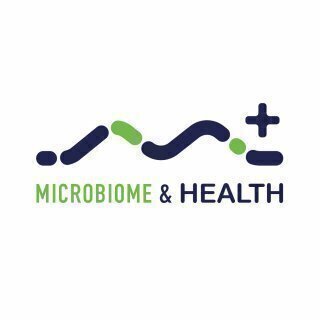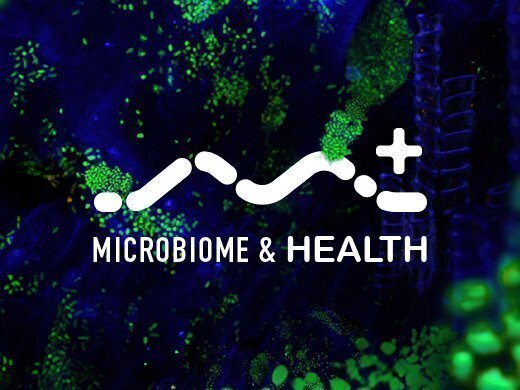Microbiome & Health
Course start: 4. Οκτωβρίου 2021
Microbiome & Health
The Berg Group
Scientific classification:
Course start: 4. Οκτωβρίου 2021
Microbiome & Health
The Berg Group
-
Scope: 6 units
-
Effort: 2 hours/week
-
Current participants: 1324
-
Licence: CC BY-SA 4.0
-
Course start: 4. Οκτωβρίου 2021
-
Course end: -
-
Current status: Ongoing course
-
Available languages:
Trailer
Course details
General information about the course
The microbiome is defined as a characteristic microbial community occupying a reasonable well-defined habitat which has distinct abiotic properties. Microbiome research represents a novel chapter within microbiology. Due to its potential and benefits for human and environmental health, it has recently become a popular topic in science and also among the general public. Despite permanent progression in Next Generation Sequencing methods and bioinformatics analyses that allowed us to get ever-expending knowledge on the mechanisms behind, there is still no microbiome-related textbook available. This MOOC provides an introductory knowledge platform for multiple disciplines i.e. medicine, agriculture, food science, biotechnology/-economy, and informatics. The Microbiome & Health MOOC will comprise interactive lectures and presentations, experiments and even a game!
For all the latest information on highlights and recent publications in the field of microbiome research, follow us on X @GBerg_ubt ![]()
Course content
The Microbiome & Health MOOC will cover introductory and latest scientific information. The microbiome´s influence on plant, human and planetary health will be discussed and novel techniques and methods for data analysis will be presented. The MOOC is structured in the following chapters:
INTRODUCTION
- Microbiome definition
- Importance of microbiome research
- General rules and concepts of the microbiome
TECHNIQUES AND METHODS
- A combination of methods is always necessary
- Case study: metabarcoding
- Case study: data analysis
THE PLANT MICROBIOME
- The plant microbiome in facts
- The apple example
- Managing the plant microbiome
THE HUMAN MICROBIOME
- The human microbiome in facts
- Understanding your own microbiome - early life
- Understanding your own microbiome - adult life
- Tiny Biome Tales - an educational game about the human microbiome
RESISTOME AND EXPOSOME
- The importance of multi-resistant pathogens
- The natural resistome
- The exposome
MICROBIOME RESEARCH FOR PLANETARY HEALTH AND SDGs
- Microbiome and planetary health
- Microbiome and SDGs
Learning goals
After finishing all chapters, you will have acquired advanced knowledge about the microbiome and related topics in the field of plant and human research. You will be aware of state-of-the-art methodologies including bioinformatic data processing. The importance and potential of the microbiome to combat current global issues, such as biodiversity loss, the spread of multi-resistant pathogens and climate change, will be conveyed, and the need for preservation strategies to protect microbial diversity and functions should be appreciated.
Prerequisites
Basic biological knowledge, but mainly interest in this novel research field and the opportunity to gain insight into current findings!
Course schedule
Each of the six chapters consists of a written introductory part, two to three videos or other interactive elements and a (multiple choice) quiz. For successful completion of the Microbiome & Health MOOC, you need to answer at least 75% of the questions in each of the six quizzes correctly. Once you have achieved that, you are rewarded with a certificate and a badge!
Certificate
For actively participating in the course you will receive an automatic conformation of participation (certificate) which includes your username, the course duration as well as the hours required to complete the course. We want to point out that this certificate merely confirms that the user answered at least 75% of the self-assessment questions correctly.
Licence
This work is licensed under a Creative Commons - Partage des conditions initiales à l’identique 4.0 Internationale (CC BY-SA 4.0).
Additional content
Information for students
The successful completion of this MOOC is an essential prerequisite for the examination of four different lectures given by Institute of Environmental Biotechnology. Thus, you must reach at least 75% correctness in each of the six quizzes and pass the lecture examination to gain ECTS-points for the following TU Graz/NAWI lectures:
- Microbiome in Health and Environment (MOL.971UF)
- Biodiversity and Applied Microbiology (MOL.731UF/PLA221UF)
Course instructor

The Berg Group
Gabriele Berg is the head of the Institute of Environmental Biotechnology at Graz University of Technology. Together with her group she focuses on microbiome research and the translation of results into novel biotechnological concepts beneficial for the environment. Her vision is to combine microbiome research and management to prevent further biodiversity loss and global health issues accompanied therewith. Since 2018, she has been one of the most influential researchers world-wide (top 1 %, Clarivate Analytics).
Partners
-

Graz University of Technology
-

Institute of Environmental Biotechnology TU Graz
-

Game Lab Graz


